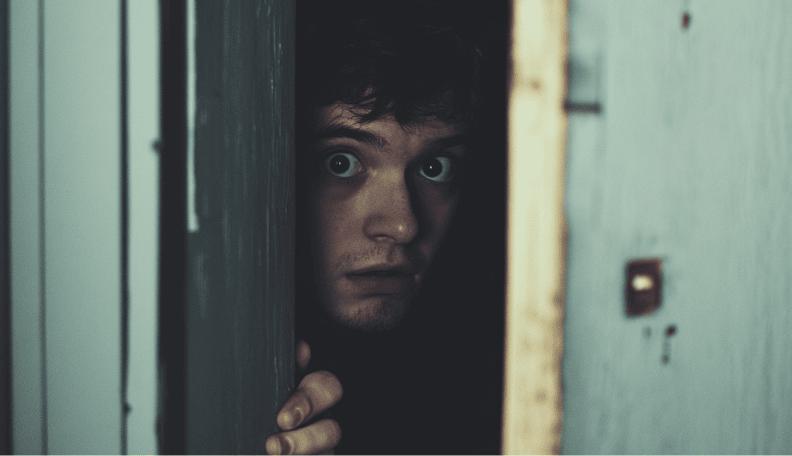Do you think you are socially strange? Shame in social conditions can be harmful to your emotional good. Don’t worry, what can you do here.
Socially strange is never a matter of feeling embarrassed or wrong. For many people, it can be a real curse, destroying their ability to maintain healthy social life or develop meaningful relationships.
Due to social strangeness
If you are wondering if you are just born and socially strange, then you are not alone. This question is contained in a complex mixture of several grapes, and answer factors.
1. Environmental impact
If you have been raised or often find yourself in an environment where social interaction is not encouraged or considered negatively, it is natural to feel out of place in social settings.
This discomfort can steal from not having enough opportunities to practice and refine to practice social skills, which can cause a feeling of being socially strange. Schools, workplaces, or even limited social interaction houses can promote these emotions.
2. Family mobility
Your family plays an important role in your social development. If you have grown up in a house where open communication was not encouraged, or where social skills were not effectively modeling, you can find yourself struggling in social situations.
In contrast, families that encourage open dialogues and social interaction can help develop more strong social skills.
3. Peer conversation
Our companions greatly affect our social development, especially during childhood and adolescence.
Positive colleague interactions help develop good social skills, while negative experiences such as bullying or social exclusion can lead to long -lasting feelings of social strangeness.
4. Biological factor
Some aspects of our biological makeup may inspire us to social anxiety or strangeness.
Studies have shown that some brain chemistry and hormonal balance can affect how we process social signals and respond to social conditions.
5. Genetic predisposition
As we can inherit physical symptoms, there is evidence to suggest that social symptoms can also be passed.
If social strange is common in your family, then playing can be a genetic component. However, genetics are not destiny – this is just one piece of puzzle.
6. Neurological aspect
People with neurological differences can process social signals differently, leading to unique social interaction styles. It is important to identify that it is not about being socially strange, but about having a different social approach.
7. psychological factors
Psychological conditions such as social anxiety disorder can contribute significantly to the feelings of social strangeness. When your brain is concerned about constantly justice or making mistakes in social situations, it can be challenging to interact comfortably.
8. low self-esteem
How do you see yourself that you play an important role in your social relationship. If you struggle with less self -esteem, you can doubt your ability to be effectively engaged in social situations, which in turn can make you feel more socially strange.
This is a cycle where poor self-assumption feeds social discomfort, which then reinforces negative self-determination.
9. Fear of decision or rejection
This fear can make you hyper-live in social conditions, which can cause self-consciousness and hesitation that can see others as strangeness.
This is a natural feeling, but when unpaid, it can be a significant obstacle for comfortable social interaction.
Shouts of social strange signs
Now, it may not be easy to know whether you are socially strange or not. You may think that you are just a bit bizarre, but there are some signs that may indicate social strangeness.
1. Spotlight
If so, it is a classic sign of social strangeness and anxiety, where your general knowledge is defeated with a heavy nervousness around others.
2. Clumsyness
Similarly, all other motor functions respond to your veins, allowing the simplest action look like intensive tests of cognitive control.
3. Poor understanding of social signals
Are you one of those who never know when to join hands or kiss a cheek?
4. Strange conversation
When you are socially funny, your interaction with others never flows naturally.
It overlaps and interrupted, or you leave heavy silence and excessive major stagnation, where it would be more suitable for making some contribution to say.
5. Unfair conversation
This is one of the most embarrassing shameful of all the misfire of being socially strange, and it can cause a lot of misunderstandings about the nature of your character.
To blur a sexist comment in front of a group of people of the opposite sex, for example, relaying crudities in a humble company, or failing to get into an alcoholic night feeling with friends serious to any social status. Can cripple from
6. Man on moon syndrome
Do you, very easily, feel that all others are from a different planet? Like nothing is normal between you and the rest of humanity, which then takes you in search of your own company?
How to be socially strange here
Unfortunately, there is no answer to overcome your strangeness. But you can apply several stages over time that will eventually curb your nervousness when it is finally out.
If you feel that you are suffering from this particular curse and want to do something about it, the following steps may be ways to complete your social obstacles and mix with the rest of the society.
1. Think out of yourself
They are thinking about their jobs, partners, children and one thousand other things, but usually not you. Once you realize this, you will be very happy to interact with others.
2. Listen
Many reasons you misunderstand that you are so stressed and concerned about making mistakes that you do not hear properly.
3. Stop
If you are getting clumsy, things are going wrong, and are becoming aware that you are making things a bit strange, then stop.
Stop everything – take a deep breath before starting thinking, movement, speech, etc. – and again. Even slippery slope can be offered.
4. Straight
Despite the fact that the slutch looks a bit strange and uncomfortable, it also obviously breathing and speech, which is likely to increase the number of social mistakes you made.
If you feel more confident and honest, it is easy to act in that way, and the two will stimulate each other in a cycle of enlarged confidence.
5. Smile
This will, in turn, will add to your rest level, in turn.
6. Start
A simple interview technique that works evenly well in social situations is to start interaction.
7. Learn to laugh at yourself
If you travel, stumble, or say something foolish. In fact, nothing is wrong with being socially strange.
As you are talking to people, make mental notes of things they are saying. It fulfills many purposes. First of all, it will force you to listen to the conversation and correct your social signals.
Secondly, the task of doing things for memory will distract you from your veins, a type of auto-intelligent sleet of hand.
9. Tighten
It is a bizarre tip, but it works to feel really socially strange. If you are sitting down in a social situation and you feel that your veins start growing, then hold your buttocks tightly and keep them folded.
For some reason, this simple task seems to be to relax the rest of your body, as well as distracts your brain from anxiety that has started to indulge in it.
10. Do not stay
When this happens, you become even more strange, so you need to use the “Mindful Stop” technique.
It essentially mentally shouts at the word “stop” as much as you can do internally, and use that place of thinking on real life.
11. Look for response from reliable friends or family
Sometimes, obtaining external perspective can be priceless. Talk to those friends or family members whom you trust and ask for honest response from them about your social interaction.
They can provide insight into specific areas that you can improve, such as you do not contact enough eyes or interrupt others. Remember, the criticism of the goal here does not feel, but to get creative advice.
12. Active in hearing
Being a good listener is an important part of being socially low. Active hearing involves a complete focus that is being said only rather than listening to the words passively.
Show that you are shaking the head, contacting the eyes, and responding properly. This not only makes the speaker feel important, but also takes pressure to do all the things you do.
13. Join a club or group with similar interests
Finding a group or club that may align with your interests can make social interaction feel more natural and less forced. When you engage in an activity you enjoy or discuss the topic that you are emotional, the conversation can flow more easily.
This setting offers a structured way to interact socially, which may be less scare than more open-turned social conditions.
14. Work on your mental communication
A large part of communication is non -combustible, including facial expression, body language and gestures. Work when you are more aware of your mental signals and how they can be explained by others.
Simple things such as maintaining good posture, creating proper eye contact, and using gestures can greatly improve how you are considered in social settings.
15. Consider professional help when needed
If your social strangeness looks heavy and is impressing your life significantly, it can be helpful in taking professional help. A physician, especially specialized in social skills or anxiety, can provide analog strategy and assistance.
They can help you understand the root causes of your social challenges and work with you to develop practical skills to overcome them. Remember, asking for help is a sign of strength, not weakness.
16. Educate yourself on social skills
These resource can offer practical advice and practice to practice exercises. Learning about intellectually social mobility can sometimes be easy to apply these skills in real-life conditions.
17. Set small, achieved social goals
Instead of setting your social skills completely overhall overnight, set small, managed goals. For example, if it is difficult for you to start a conversation, you can set a goal to start a small thing with a colleague once a day.
18. Practice mindfulness and relaxation techniques
Anxiety is often with social strangeness, so learning to manage your anxiety can be beneficial. Mindyfulness and resting techniques like deep breathing, meditation, or yoga can help calm your brain and reduce stress.
When you relax more, social interaction may feel less difficult. In addition, mindfulness encourages you to stay in a moment, which can help you to be more current and engaged in social conditions.
19. Embrace your unique qualities
Remember, you do not need to fit a certain mold to be socially accepted; Often, this is our quirks that keep us memorable and endurance. Learn to be comfortable in …
Welcome to XTalkies
Your Ultimate Destination for Entertainment and Stories!
At XTalkies, we bring the magic of cinema, storytelling, and digital entertainment straight to your screen. Whether you’re a movie enthusiast, a series binge-watcher, or someone looking for the latest updates in the world of entertainment, we’ve got you covered.









































